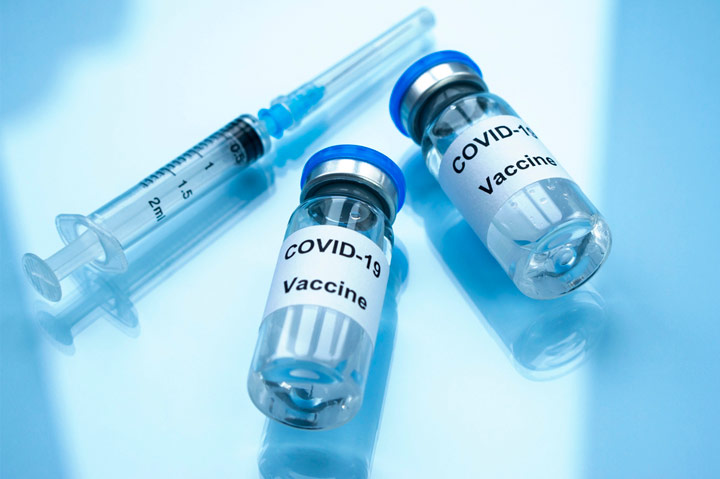News November 01, 2021
Feds Clarify Vaccination Requirement for Federal Contractors
The mandate related to COVID-19 shots applies to promotional products companies that are contractors and subcontractors with federal agencies and departments.
UPDATE Thursday, Nov. 4 11 AM eastern
The Biden Administration has moved back the deadline for federal contractors to comply with the vaccination mandate to Jan. 4, 2022.
The Biden Administration has issued more in-depth guidance regarding the COVID-19 vaccination mandate that it’s installing for federal contractors and subcontractors.
Companies in the promotional products industry that are federal contractors and subcontractors will have to conform to the vaccination requirements or risk termination of their contracts with agencies and departments of the United States’ government.

Key tenants of the new guidance include clarification on how contractors should deal with an employee who refuses to get vaccinated and who has also not applied for or received an accommodation absolving them of the vaccination requirement.
The guidance grants contractors flexibility in this situation, saying that they should determine the appropriate means of enforcement. “This may include the covered contractor using its usual processes for enforcement of workplace policies, such as those addressed in the contractor’s employee handbook or collective bargaining agreements,” the guidance says.
Contractors could also consider enacting enforcement measures being used by federal agencies. This approach emphasizes encouraging compliance from the employee through counseling and education first, and then disciplinary measures if necessary. A firing would occur “only after continued noncompliance,” the government states.
The vaccination mandate for federal contractors has been at the center of controversy. Eleven states have filed lawsuits against the federal contractor vaccination mandate, Government Executive reported. Florida, among the states to have filed suit, argues that the federal government is overstepping its authority with the mandate, effectively using the contracting process to enact public health policy.
Eleven States Challenge Federal Contractor Vaccine Mandate https://t.co/cOTUptLwsK pic.twitter.com/TMBlS9MnHQ
— GovExec (@GovExec) November 1, 2021
As of this writing, the vaccination mandate for federal contractors remains in play.
According to the guidance for employers, certain employees of federal contractors may be alleviated of the vaccination obligation. Reasons individuals can receive such an accommodation from their employer would be that they have a sincerely held religious belief, practice or observance against vaccination and/or that they have a medical condition/disability that would preclude them from being vaccinated.
The Biden administration has indicated that it will be up to federal contractors and subcontractors to determine if an employee should receive a vaccination exemption.
The newly issued guidance states that contractors must notify government agencies’ contracting officers when they have an employee who has received an accommodation working onsite at a federal workplace. The guidance notes safety protocols, such as masking and social distancing, will need to be followed in such instances. It also notes that an agency may determine that the accommodated individual can’t work at the site without vaccination, one implication of which is that an alternative employee would have to be found.
The forthcoming #COVID vaccination mandate stands to impact #promoproducts companies. Developments related to it are worth keeping an eye on. https://t.co/JLLWFeXZ0E @ASI_MBell @asicentral @Tim_Andrews_ASI
— Chris Ruvo (@ChrisR_ASI) October 25, 2021
The Biden administration has marked Dec. 8 as the deadline for federal contractors to have employees vaccinated. However, it seems there will be considerable leeway with that deadline, and contractors will not have to show proof of vaccination status of employees at the deadline.
“Senior administration officials made clear that Dec. 8 is not a hard deadline for contractors to have all of their employees fully vaccinated,” CNBC reported. “Instead, contractors must demonstrate they are making a good faith effort to ensure employees are getting vaccinated and have plans in place to ensure masking and social distancing policies are followed in the workplace.”
The guidance notes that the primary contractor on a federal contract can assume that its subcontractors are complying with the vaccination mandate (and thus not have to spend time and money verifying conformance) as long as it inserts a required clause on the vaccination mandate into its first-tier subcontracts.
“Additionally, first-tier subcontractors are expected to flow the clause down to their lower-tier subcontractors in similar fashion so that accountability for compliance is fully established throughout the federal contract supply chain for covered subcontractor employees and workplaces at all tiers through application of the clause,” the guidance states.
Beyond the vaccination regulations on federal contractors, President Joe Biden announced in September that he’d be moving forward with a mandate that would obligate private and public U.S. companies with more than 100 employees to require that all workers be vaccinated against COVID-19 or to test each unvaccinated employee weekly.
The Labor Department is still finalizing those rules, but business leaders have asked the mandate to be delayed until after the winter holidays, saying it could exacerbate supply chain disruption across industries and negative economic impacts if instituted during the fourth quarter of 2021.
Executives in promo have expressed mixed reactions to the mandate for larger employers across industries.
“I see this as a much-needed step in the fight against COVID and as critical to the recovery of the U.S. economy,” a C-Suite leader at a Top 40 promo company told ASI Media. “While this is understandably a hot-button issue and federal requirements should be a last-resort solution, we are unfortunately left with few alternatives.”
Said another Top 40 leader: “On the plus side, this will increase vaccination rates and reduce absenteeism that businesses have to deal with. The downside, and this is not an insignificant one, is that trust in our institutions, which is already badly degraded, will further erode as a result of the compulsory nature of this measure. That’s an issue, because worldwide there is a strong correlation between lack of trust in government and vaccine hesitancy. While I think the benefits to both individuals and businesses from this vaccine mandate are apparent, I harbor concerns about the broader ramifications that a coercive measure such as this is likely to result in.”
